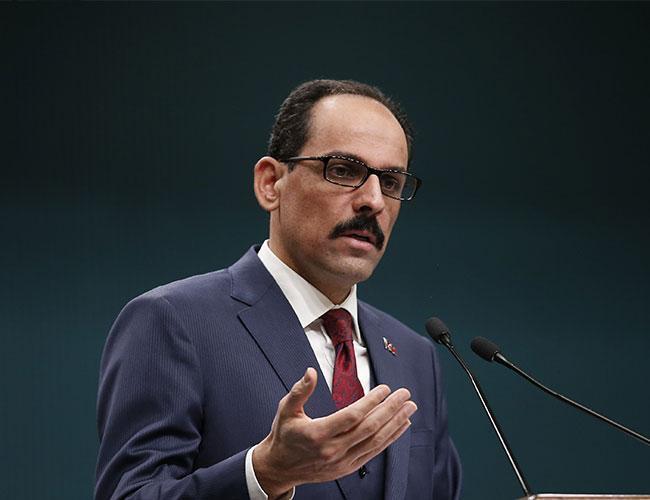
Some 700 civilians from Syria’s besieged Eastern Ghouta who were supposed to come to Turkey for medical treatment were actually taken to southern Damascus, Turkish Presidential Spokesman İbrahim Kalın said on Feb. 28.
Speaking in Mauritania, where he was asked to respond to Russian President Vladimir Putin’s recent statement on the evacuation of civilians in Eastern Ghouta, Kalın said it was an issue that President Recep Tayyip Erdoğan had called for about a month ago.
“Our first demand was to bring them to Turkey, but we were informed that they were taken south. This group set off nearly a week ago after the demand was first made by our president,” Kalın said, referring to previous phone conversations with Putin.
“We didn’t share this explicitly as they never came to Turkey as we expected. But Mr. Putin has just announced [that they were in Damascus],” he said.
Kalın also said Turkey is still ready to take in civilians needing medical attention.
Hundreds of people have died during 10 days of the Syrian regime’s reported bombardment of Eastern Ghouta, an area of towns and farms on the outskirts of Damascus. The assault has been among the most devastating air campaigns of a war now entering its eighth year.
Since Feb. 19, escalating hostilities have resulted in 500 deaths and some 1,500 injuries, with 24 health facilities impacted by shelling and airstrikes, according to U.N. officials.
The attacks come despite a U.N. Security Council resolution passed on Feb. 25 for a 30-day cease-fire in Syria.
On Feb. 26, Russian President Putin ordered daily “humanitarian pauses” in Eastern Ghouta, Russian Defense Minister Sergei Shoigu said.
Shoigu said in a statement that a cease-fire would be arranged for the suburb of the capital Damascus between nine a.m. and two p.m. every day starting on Feb. 27.
On Feb. 27, its military said it would guarantee the safety of any civilians who wished to leave. Residents in several towns in the district described a brief pause in fighting, but said bombardment swiftly resumed. The Syrian government even gained more ground during the “humanitarian pauses,” the Syrian Observatory for Human Rights reported on Feb. 28.